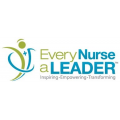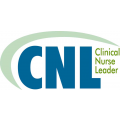For our 2024 rankings, the research team at Nursing Schools Almanac collected data on nearly 3,000 nursing schools and campuses throughout the United States. We evaluated each school on three dimensions:
Search for nursing schools and programs in your state:
Nurse educators are registered nurses (RNs) that teach patient care in classroom and clinical settings to nursing students. They teach at colleges, universities and professional schools as well as junior colleges, technical and trade schools and hospitals. Some nurse educators work for business schools and in computer and management training. With so many options, many RNs see nurse education as a career with wide-ranging possibilities.
Every year, about 42.5 million American adults suffer from some mental illness. This is nearly 18.2 percent of the total adult population or nearly one in five Americans. Even worse is, approximately 9.3 million adults, or about four percent of those Americans ages 18 and up, experience “serious mental illness.” This is illness that impedes day-to-day activities such as going to work. Because of the dramatic rise in mental illness, the demand for nurses skilled in psychiatric-mental health is greater than ever before.
There are several paths to becoming a family nurse practitioner (FNP). Two of the most common are a master of science in nursing (MSN) with a FNP specialization and an MSN with a FNP certificate. Either path qualifies graduates to sit for the certification exam administered by the American Nurses Credentialing Center (ANCC) or the American Association of Nurse Practitioners (AANP). If successful, newly certified FNPs can expect ample employment opportunities and an increase in pay.
Registered nurses (RNs) provide and coordinate patient care, educate patients and the public about various health conditions, and provide advice and emotional support to patients and their family members. Some registered nurses work with specific patient groups such as those with heart disease, disabilities, and addictions. While nurses are in high demand in these fields, and in general, the demand for RNs with leadership skills is even higher.
Nurse administrators are registered nurses (RNs) that are responsible for planning, directing, and coordinating medical and health services. They may manage a specific clinical area or department, a medical practice for a group of physicians, or even entire facilities. Because they must adapt to changes in healthcare laws, regulations, and technology, nurse administrators often take continuing education courses throughout their career.
A post-master’s certificate in nursing prepares nurses with a prior master’s degree to expand their area of expertise and to qualify to take the certification examination appropriate to the certificate. Examples of post-master’s certificates in nursing include family nurse practitioner (FNP), nurse executive, and nurse educator. Registered nurses (RNs) in these areas and other advanced roles often earn more than RNs without a certificate.
Graduate certificates in nursing are designed for nurses looking to enhance their expertise in specific areas of nursing. Examples of graduate certificates include nursing education, nursing informatics, care coordination, diabetes nursing, and nursing leadership. Besides career advancement, obtaining a graduate certificate in any of these specialized fields offers greater earning potential. For example, registered nurses (RNs) earned an average of $68,450 in 2016. However, RNs specializing in nursing leadership and management earned $96,450.
More than 100 million U.S. adults are now living with diabetes or prediabetes, according to a report released this year by the Centers for Disease Control and Prevention (CDC). This means the demand for healthcare providers that specialize in diabetes is higher than ever before, with diabetes nurses leading the way.
The Bureau of Labor Statistics (BLS) defines nurse practitioners (NPs) as registered nurses (RNs) that serve as primary and specialty care providers, delivering advanced nursing services to patients and their families. They assess patients, determine the best way to improve or manage a patient’s health, and discuss ways to integrate health promotion strategies into a patient’s life. Nurse practitioners typically care for a certain population of people. For instance, NPs may work in adult and geriatric health, pediatric health, or psychiatric and mental health.
Clinical nurse leader (CNL) is a specialty area within the nursing field. Nurses in this advanced practice role focus on care coordination, transitions of care, risk assessment, outcomes measurement, implementation of best practices based on evidence, interprofessional communication & team leadership, and quality improvement. CNLs manage teams, which can include licensed nurses, technicians, and other health care professionals, and in certain, complex cases, they might be responsible for direct patient care.















